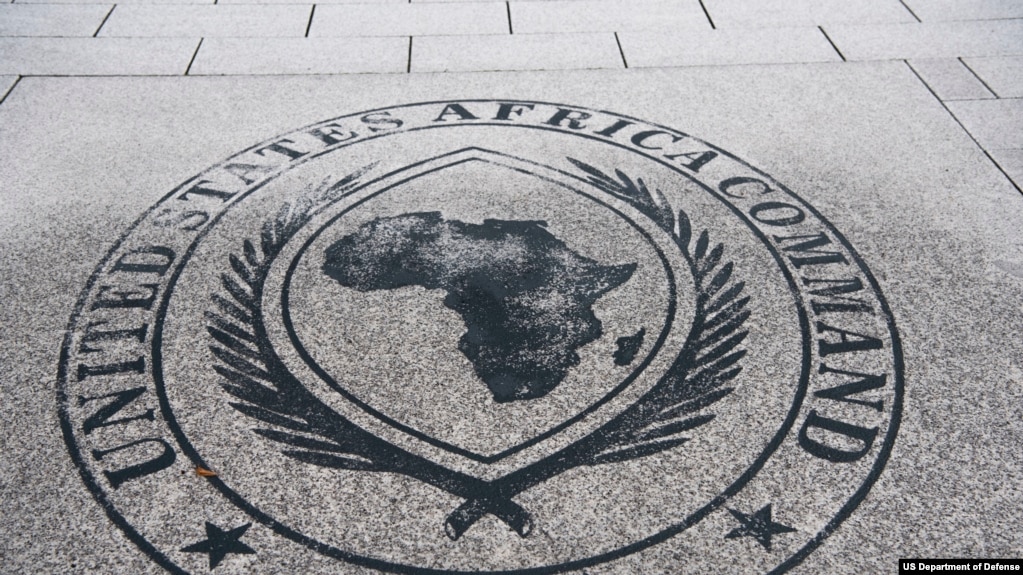
FILE – The logo of U.S. Africa Command is seen in Stuttgart, Germany, Sept. 5, 2019.
GABORONE, BOTSWANA —
Defense chiefs from 30 African countries will gather in Botswana next week for a two-day military conference to discuss the continent’s security and stability challenges. The meeting, organized by the United States Africa Command, or AFRICOM, will be the first to be held in Africa since the inaugural conference in 2017
“The aim [is] to tackle the pressing security challenges on the African continent and to find ways to work together for a safer, more secure Africa,” said Lt. Commander Bobby Dixon, a spokesman at AFRICOM. “From counterterrorism efforts to cyber threats and peacekeeping missions, this conference will cover it all. Experts and military leaders will share insights, strategies, and forge partnerships that will strengthen the collective defense capabilities for all of Africa. This is more than just a conference — it’s a significant step towards a unified approach in safeguarding the African continent.”
AFRICOM says the meeting will build on the success of previous conferences. Last year’s meeting held in Rome, Italy, attracted the highest turnout, with 43 countries in attendance.
“It is evident that Africa faces a series of challenges,” said Jakkie Cilliers, a political scientist at the Institute for Security Studies in Pretoria. “It is not always clear that the model that the U.S. presents is appropriate for Africa. In recent years, we have seen a variety of coups in Africa, sometimes executed by African forces that have been trained in the U.S., the U.K. and France. And it is also evident that a number of U.N. peacekeeping missions, such as that in the DR Congo and Mali, are withdrawing from Africa.
“On the other hand, the role of Russia and the so-called Africa Group [pls check the audio; it is usually called the Africa Corps] is expanding. So, it’s clear that Africa is facing a security challenge, and partners can and should do as much as possible to help.”
Cilliers added that there is a need for the Gaborone conference to come up with effective solutions to the continent’s security challenges.
“Are we seeing a new model developing where African governments are considering alternative security arrangements, mostly by other African countries?” he said. “And of course, the role of private companies is also increasing. These events occur at a time of significant shifts in the global balance of power, and Africa again is an area of competition. One hopes all these issues will be discussed at the upcoming conference in Gaborone, and that real solutions will come to the fore.”
In March, following its Peace and Security Council meeting, the African Union expressed “deep concern” over the scourge of conflicts on the continent and their impact on socioeconomic development.
